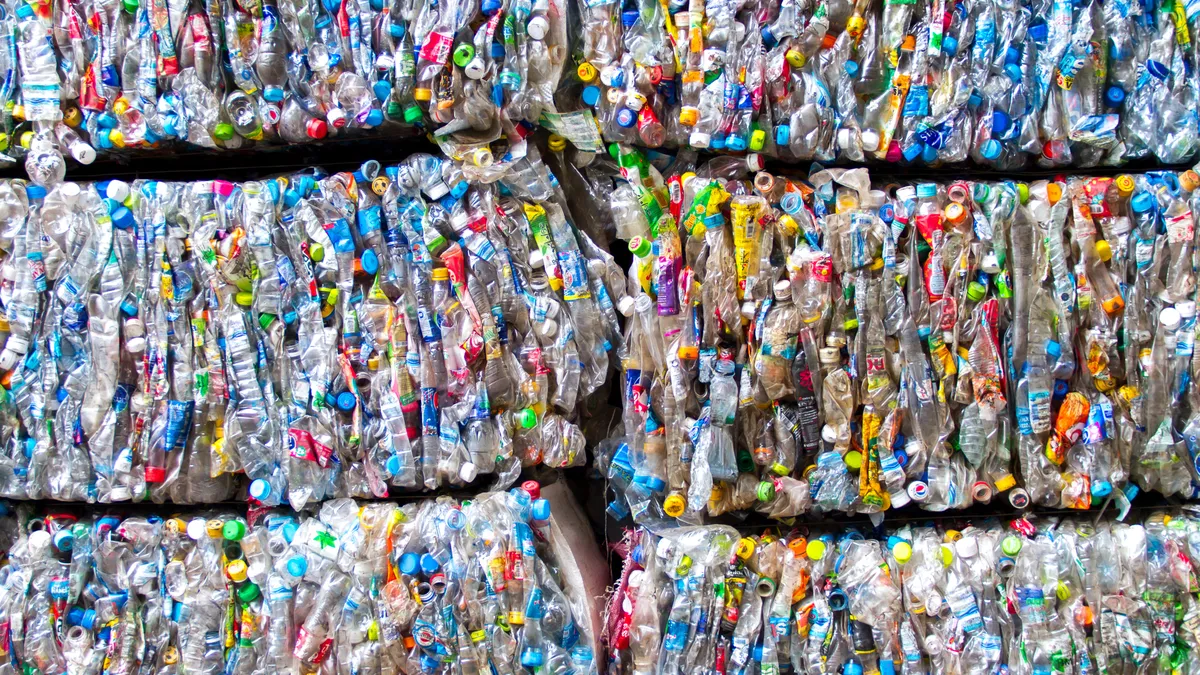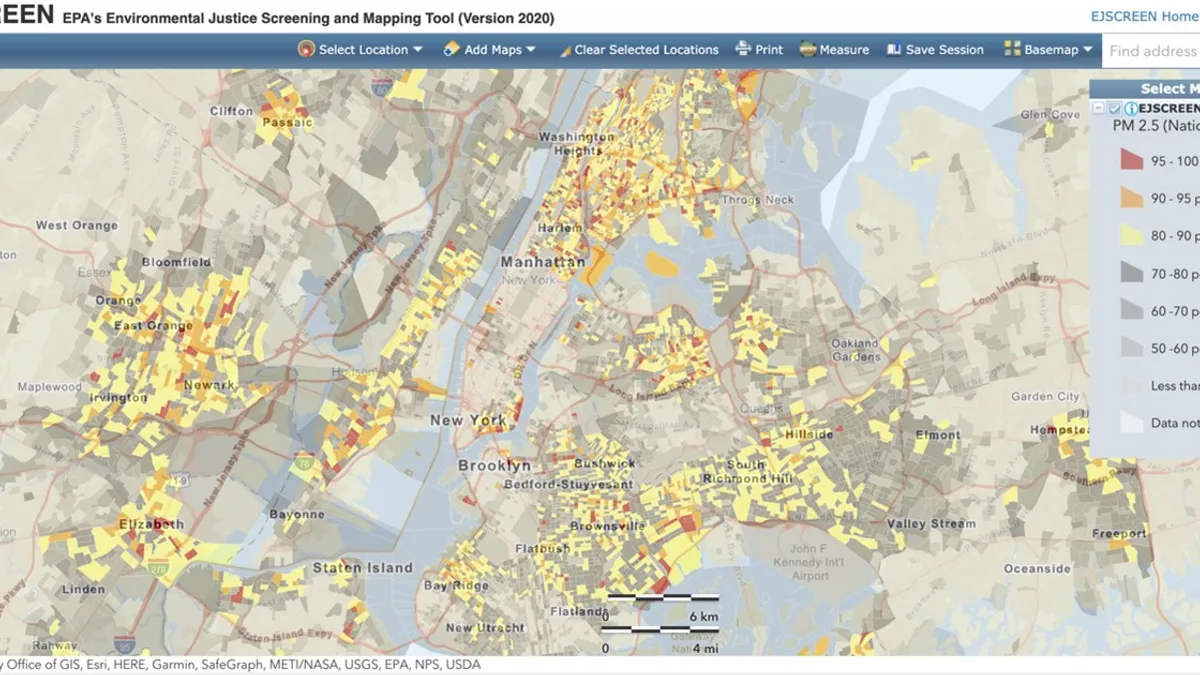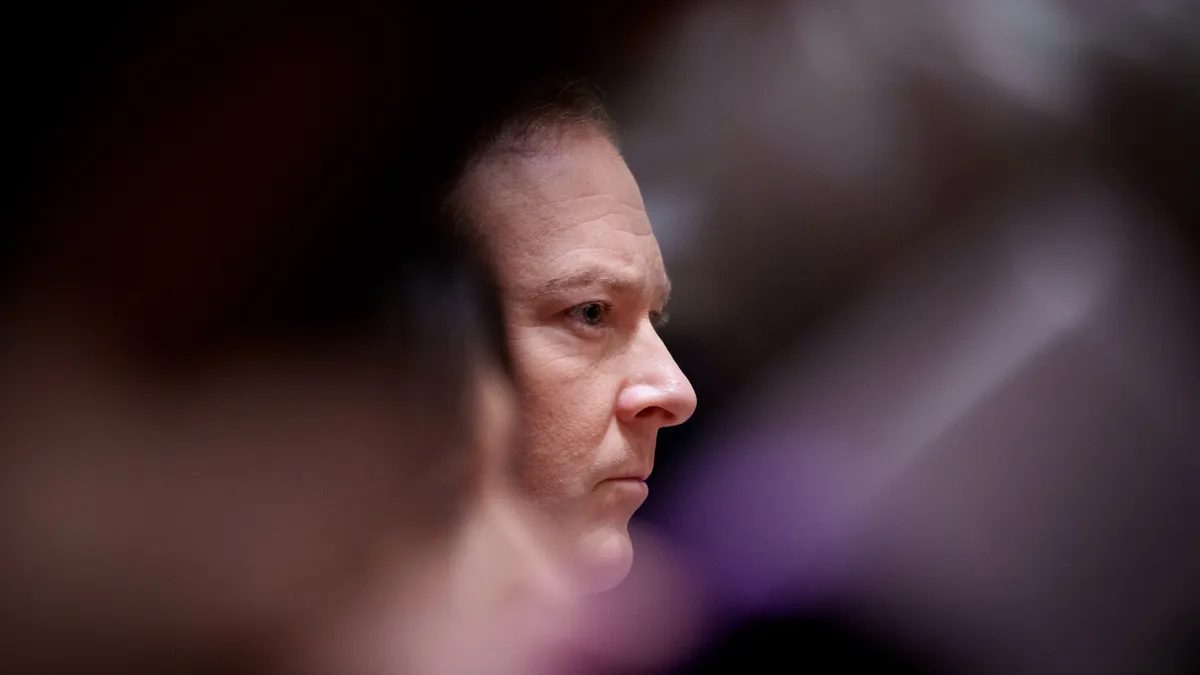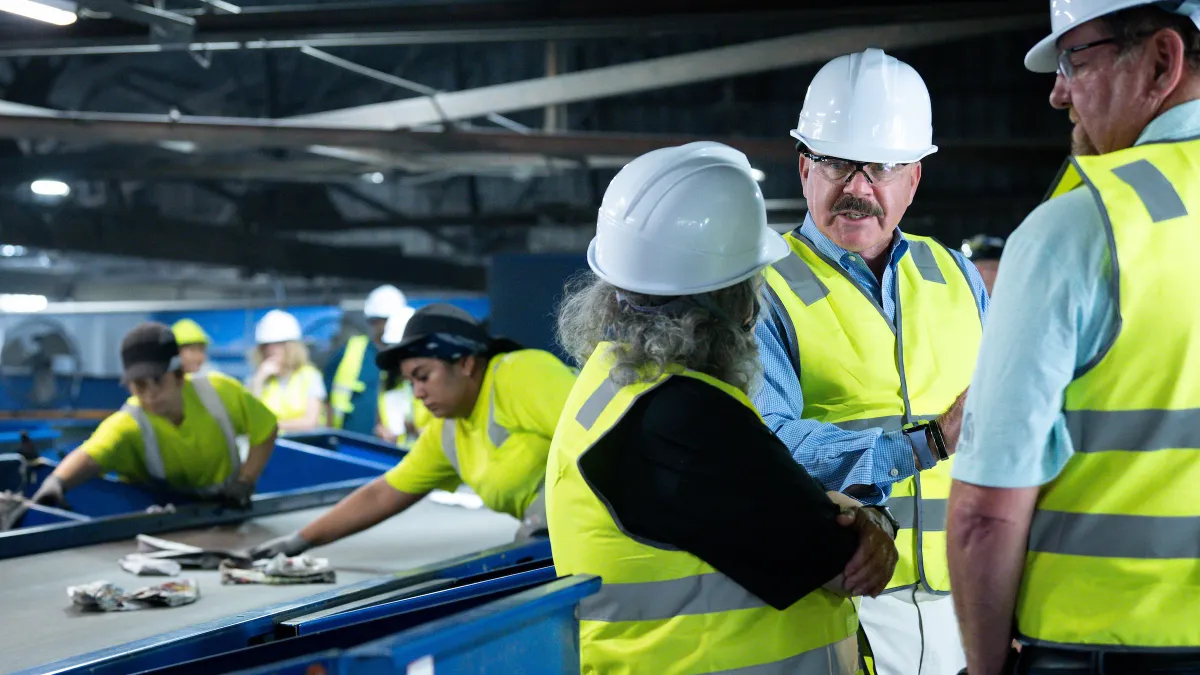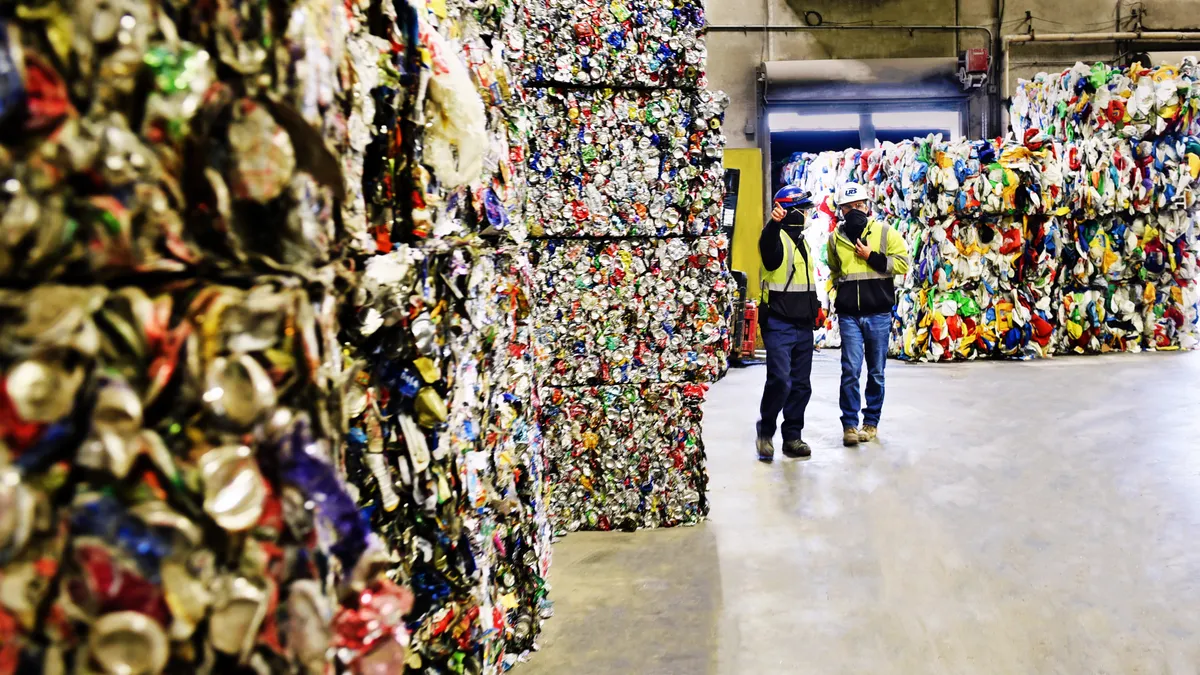As the noisy battle over plastics continues to intensify in legislative and public debate, the behind-the-scenes tactic of shareholder advocacy has seen numerous developments this year.
Shareholder resolutions are non-binding in the U.S., but they can still yield key agreements when a proposal is withdrawn or if it goes through a successful vote. In prior years, these efforts have led major public companies to announce commitments for phasing out specific types of plastic packaging, setting broader plastic reduction goals and publishing reports on plastic recycling infrastructure.
This year, resolutions backed by groups such as the nonprofit As You Sow and investment advisor Green Century Capital Management have resulted in high-profile commitments on refillable beverage containers and one of the first absolute plastic reduction goals by a major company. Multiple important votes are still pending in the weeks ahead.
Reduction and reuse
While many categories of material can contribute to packaging waste, plastics are once again the prime focus of this year's shareholder advocacy efforts. Conrad MacKerron, senior vice president at As You Sow, said his group used to pursue proposals focusing on all materials but intentionally made a shift in recent years.
“Plastic is such a bellwether material. It gets people so angry that you focus on that to get their attention," he said, adding that other materials have better recycling rates and plastic also takes on a bigger role because of its many different formats in packaging.
Another shift has been to focus on overall plastic reduction targets, rather than higher recycling rates or amounts of recycled content. In particular, MacKerron cites a 2020 report from the Pew Charitable Trusts about the need for greater emphasis on plastic reduction as a turning point for his approach to these issues.
Annalisa Tarizzo, a shareholder advocate at Green Century, highlighted this year's commitment to an absolute plastic reduction goal by the company that owns Office Depot and OfficeMax as especially notable in this category. While the office supply retailer may not be top of mind for some working in the plastics space, Tarizzo said her work specifically focuses on companies in Green Century's mutual fund portfolio and she intends to systematically go through that list.
“I want every single company in our portfolio that uses single-use plastics to have at least a virgin reduction goal in the next few years," she said.
Tarizzo also highlighted a rare level of support for another resolution filed with fast-food chain Jack in the Box, which called for a report on a sustainable packaging policy. Despite a recommendation by the company's board of directors to vote against it, that cited pandemic effects and ongoing packaging efforts, the proposal garnered 95% support from shareholders in March.
Yet the highest-profile outcomes to date came from two of the world's biggest beverage companies.
In February, Coca-Cola pledged to have at least 25% of its beverages sold in refillable/returnable glass or plastic bottles, or in refillable containers through fountain dispensers, by 2030. Although As You Sow filed a proposal in November requesting a plan for refillable bottles, MacKerron said this had already been partially in the works at Coke. A related pledge by PepsiCo to set its own target this year may have been more influenced by a proposed shareholder resolution.
According to reports submitted to the Ellen MacArthur Foundation, an estimated 1.7% of Coke's plastic packaging was reusable (down from the prior year), though MacKerron notes the company has sizable infrastructure it can expand in certain international markets. Pepsi reported its rate as 0%, though the company now owns SodaStream and MacKerron expects it to be exploring this area further. Pepsi did not respond to a request for comment to clarify information about its current percentage of reusable plastic packaging.
While interest and investment in reuse/refill systems has expanded significantly in recent years — across categories such as takeout, groceries and e-commerce — Closed Loop Partners say this is still a nascent but fast-growing area. It remains to be seen exactly what proportion of a company or sector's portfolio could be feasibly converted to this model in the U.S., but shareholder advocates aren't considered the ones who need to figure that out.
“They know their tactics work in pushing and they’re not the technical authorities on how to make this happen," said Bridget Croke, a managing director at the investment firm. “If they waited until they really understood how companies were going to get there I don’t think they would be effective in pushing these companies.”
This emphasis on reuse and refill comes as different types of advocates, including environmental organizations, are increasingly fed up with plastic recycling. That tension isn't lost on entities such as Closed Loop and The Recycling Partnership that work to direct more money to recycling infrastructure — with donations and investments from many of the major brands being targeted by shareholder proposals — but they still see a clear role for recycling to play.
“We can’t recycle everything, so I think it’s really exciting to see that this has helped generate refill goals," said Sarah Dearman, vice president of circular ventures at the Partnership, noting investments in recycling infrastructure are still considered essential in part because "even those reusable packages will have an end of life and we need those to be recycled."
Looking ahead
The coming weeks will see votes on multiple pending proposals, including requests for ExxonMobil and Phillips 66 to provide information on the potential effects of shifting away from virgin plastic production, as well as proposals calling for plastic reduction plans at major household names.
Amazon is currently opposed to a resolution calling for it to reduce plastic packaging usage by one-third, saying it has already taken steps to reduce packaging weight and invest in recycling infrastructure. McDonald's has a similar position against its own pending proposal. Kroger cited similar reasons for its own opposition, though MacKerron is optimistic after a similar proposal received 45% support at the company's 2021 annual meeting.
Despite growing investment and discussion around sustainability by certain companies, this ongoing push and pull dynamic is expected to persist going forward. Croke noted that while some company leaders have seen success by embracing sustainability (Unilever) others have been ousted as a result (Danone).
“A CEO has to walk a fine line because there’s activist investors on both sides," she said. "How do they push enough in a way that allows them to move the needle and get to their goals without scaring their older school investors?”
Further complicating the picture for brand leaders is the increased amount of consumer interest in this area that can have an effect on corporate reputation.
Dearman said recent research from The Recycling Partnership found an overwhelming majority of consumers expect packaging to be readily recyclable and companies that don't respond may fall behind.
“Whenever you have companies stepping up to be leaders like that then it really shows the companies that are not stepping up," she said. "A sustainable packaging strategy is really something that every company should have, that’s really a good place to start."
A long list of ambitious sustainability targets are also looming in the horizon, many of them for 2025. On the shareholder advocacy side, MacKerron said his group will be focusing more on flexible packaging heading into 2023 as one of the "very tough choices" companies will need to make.
“Do we spend billions of dollars in the next three years to ramp up some type of actual circular path for pouches and sachets and flexibles that frankly doesn’t exist now?" he asked. “I think a lot of them have to face this, within the next year, what they’re going to do."
One potential path for this material — if companies choose to keep it in their portfolios, rather than phase it out — is chemical recycling. Dearman said it's still too early to tell whether all of the promised investments and capacity in that area will come to fruition, and she said the real test will be when facilities are running at scale and buying curbside material from MRFs.
Croke agreed that the 2025 targets will be a tall order — in part because they're still far enough away that some of the executives currently leading these companies may not be around by that point — and sees an important role for outside groups focused on accountability.
At the same time, Closed Loop has seen more engagement from high-level executives on these issues in recent years and a greater willingness to explore reuse/refill concepts amid the rising attention on environmental, social and governance issues. Major recycling companies have also noted a similar uptick in discussions with brands lately, which Croke said is important because "they need these companies to be making the right design decisions."
And while these boardroom debates may feel far removed from the waste and recycling industry's daily work of collection and processing, shareholder advocates hope their efforts can also have tangible results on the ground.
"The work we’re doing will hopefully help them," said Tarizzo. “They’re obviously dealing with a lot of contamination, a lot of non-recyclables ending up in the waste stream."



